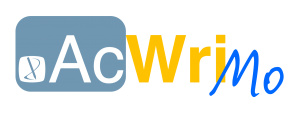This guest post is from Mark Rubin, a senior lecturer in social psychology at the University of Newcastle, Australia. You can visit his ImpactStory profile at: http://impactstory.org/MarkRubin or follow him on Twitter @MarkRubinPsych.
I’ve recently conducted an “Introduction to Academic Publishing” seminar for PhD students at the University of Newcastle and the University of Canberra. During the seminar, I spend some time explaining to students the new emphasis on publication impact. Publication impact is the influence that scholarly publications have on other scholars and the general public, and it is becoming more and more important in academia. Below, I consider some of the ways in which publication impact is making an impact in the research world.
Measuring Researchers
The quality and quantity of a researcher’s publications provide a key measure of their research productivity. Consequently, publication track records are often used to determine whether or not researchers get hired, promoted, or funded for their future research. In addition, at the institutional level, the quality and quantity of a university’s publication output help to determine its international reputation and the amount of funding that it receives based on national research performance reviews. So, there are several reasons why researchers find themselves and their research outputs to be objects of measurements.

© Lambda Chi Alpha Fraternity, Tape Measure, Creative Commons
The ethos of “publish or perish” has been around for a long time. However, in recent years, this message has become more articulated, and it now takes into account the impact of researchers’ publications. In particular, researchers are now told that they must not only publish their research but also get their publications acknowledged by other researchers and society at large. In practice, this means that researchers need to get their publications (a) cited in the work of other researchers and (b) discussed in traditional and online media. To help achieve a greater scholarly and public impact, researchers must promote and advertise their work as much as possible. In this respect, the message has now become “publish and publicise, or perish!”
Publications Need to Make a Big Splash!

© Nathan Rupert, A Little Trick, Creative Commons
Measuring Publication Impact in the Scholarly Literature: The H Index
The concern about impact in the scholarly literature explains the growing popularity of the h index, a metric that is used to quantify not only the number of articles that a researcher has published but also the number of citations that these articles have accrued in other scholarly work. My own h value is currently 12, meaning that 12 of my 33 research publications have each been cited at least 12 times in other research articles.High impact researchers are expected to have h indices that are at least as large as the number of years since their first publication. The h index is not without its critics, and some have argued that a more comprehensive assessment of publication impact should take into account a broader array of alternative impact metrics, or altmetrics, that include more than just citations in scholarly work.
The H Index

© LEOL30, Wooden Brick Letter h, Creative Commons
Altmetrics
Altmetrics platforms such as altmetric and impact story count the number of times that scholarly articles are mentioned in both the scholarly literature and online social media and websites such as Twitter, Facebook, and Wikipedia.They can also measure the number of times that online articles are viewed, bookmarked, liked, and downloaded on document managers such as Mendeley and Citeulike. Like the h index, altmetrics has its critics. However, if used wisely, altmetrics can provide a useful tool for assessing publication impact.

© A J Cann, Altmetrics, Creative Commons
“Facebook for Researchers”
In an effort to increase their scholarly impact, researchers are now advertising their work on professional social networking websites such as Academia and ResearchGate, which have over 12 million researchers signed up between them. Researchers can follow other researchers in their area and be notified about their activities, including when they publish new articles. These sites also allow researchers to publish self-archived versions of their research papers that other users can then access, further increasing their citation potential.

By ResearchGate [Public domain], via Wikimedia Commons
Funnelling News of Research Outputs: Research Blog Aggregators
Modern researchers are also blogging about their work. I do this myself and, although it takes a bit of time to prepare each post, I really enjoy turning a dry research abstract into a more accessible and appealing piece for my blog. Like many other researchers, I feed my posts through to research blog aggregators like ScienceSeeker and ResearchBlogging. These platforms funnel posts from many different research blogs into a single stream of the latest research.

© Marsmettnn Tallahassee, I think therefore I blog,Creative Commons
Open-Access = Greater Impact
The drive to publish lots of highly cited and publically-acknowledged articles also helps to explain the rise of open-access journals. Unlike traditional journals, open-access journals publish articles 100% online rather than in print and, without the associated printing costs, they are able to accommodate a greater number of journal articles. For example, PLOS ONE published 23,464 articles in 2012, making it the largest journal in the world!
Importantly, the appeal of open-access journals is not only their ability to publish more publications, but also their ability to make those publications more accessible to readers. Unlike traditional journals, which tend to hide their content behind subscriber-only paywalls, open-access journals make their content freely available to everyone with internet access. This has the effect of increasing publication impact by increasing citation rates among scholars as well as online discussion among the general public.

© Research and Graduate College Graduate Studies Office, Open_Access_PLoS, Creative Commons
Hello? Can Anyone Hear Me!?
If a tree falls in the forest and there’s no-one around to hear it, then does it make a noise? I can’t answer that one I’m afraid. But I do know that, nowadays, if a researcher publishes an article in a journal and no-one views it, downloads it, cites it, or Tweets it, then it certainly doesn’t make an impact!

© Sue Langford,Trees, Creative Commons
 Participate. While so much of the work we do as scholars requires solitude (and occasionally engenders loneliness), there can be great benefits from participation beyond your own disciplinary organizations and university activities. You may find, for example, that participating in a Twitter chat with people from other disciplines and other countries–that you would be unlikely to encounter face-to-face–may give you a new perspective on how to get through your literature review, find funding, or turn that conference paper into a peer-reviewed article. Participation can also bring you allies and friends in places you would not necessarily think to look for them.
Participate. While so much of the work we do as scholars requires solitude (and occasionally engenders loneliness), there can be great benefits from participation beyond your own disciplinary organizations and university activities. You may find, for example, that participating in a Twitter chat with people from other disciplines and other countries–that you would be unlikely to encounter face-to-face–may give you a new perspective on how to get through your literature review, find funding, or turn that conference paper into a peer-reviewed article. Participation can also bring you allies and friends in places you would not necessarily think to look for them.













 Image by http://www.flickr.com/photos/fiddleoak/
under this licence: http://creativecommons.org/licenses/by-nc-sa/2.0/deed.en_GB
Image by http://www.flickr.com/photos/fiddleoak/
under this licence: http://creativecommons.org/licenses/by-nc-sa/2.0/deed.en_GB 








